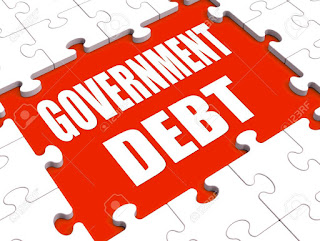Recently, the government announced that its "market debt" has exceeded one trillion dollars. The news was treated as a bombshell. Former Parliamentary Budget Officer Kevin Page warned, “the $1 trillion threshold is extraordinarily important." But Scott Clark and Peter DeVries write that this is not the first time a Canadian government has hit that threshold:
Under current borrowing procedures “market debt” in its broadest sense exceeded 1 trillion in 2012-13. The government is not facing a structural imbalance between revenues and expenditures or a fiscal crisis; and deficit elimination is not a necessary requirement for fiscal credibility.
It all depends how you count and what numbers you leave out:
In the 2018 Budget, it is projected that “outstanding government and Crown corporation market debt will reach $1,066 billion in 2018-19, including $755 billion in projected year-end government market debt and an anticipated Crown corporation market debt for three of the financial institutions of approximately $311 billion”.
The debt of crown corporations did not used to be included in government debt figures. Like other corporations, they borrowed on the private market and that debt was treated as private debt. It was the Conservatives who changed that practice:
In the 2008 Budget, the Harper Government announced that the Government would consolidate the borrowings of the Canada Housing and Mortgage Corporation (CMHC), the Farm Credit Corporate (FCC) and the Business Development Bank of Canada (BDC) into the federal debt program, rather than having them borrow individually in the private market. It was argued that consolidating the borrowings of these Crown corporations would reduce borrowing costs for them by eliminating the “agency spread”.
However, the budget also stated that the consolidation of these Crown borrowings would not have any effect on the federal government’s debt. This is because assets in the form of loans to these Crown corporations match federal borrowings related to these Crown corporations. In fact, these three Crown corporations are in a net asset position.
The Liberals have re-instated the Conservative method of counting:
In the Debt Management Strategy for 2018-19, the two types of “market debt” are listed because the Government again requires borrowing authority from Parliament in order to undertake any new borrowings above certain limits. The Harper Government had suspended this long-standing requirement in the 2008 Budget. In the Liberals’ election platform, they promised to restore this requirement and the government did so in 2017. They are now being attacked by the Conservative Opposition for being “more” transparent and accountable to Parliament than they were.
So, while you listen to Conservative furor over the Liberals' mounting debt, knowing a little bit of recent history can provide some much needed perspective.
Image: 123RF.com





























